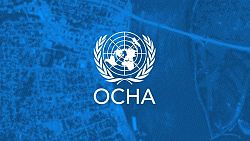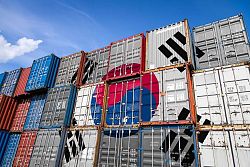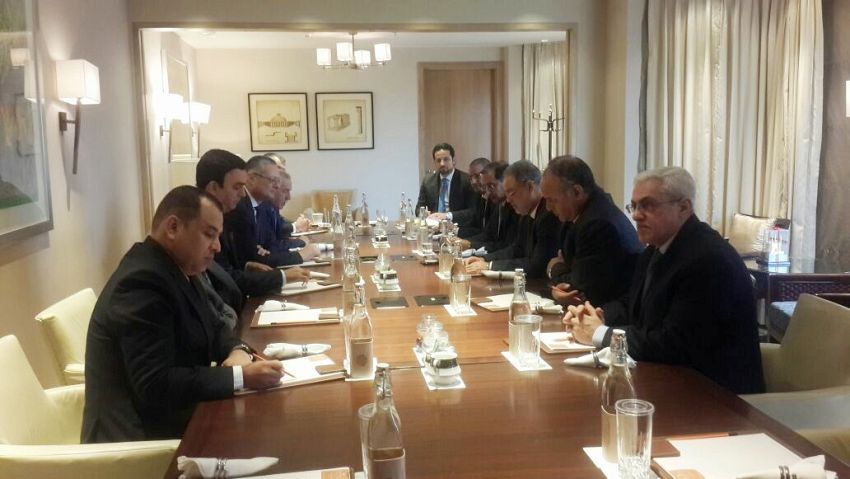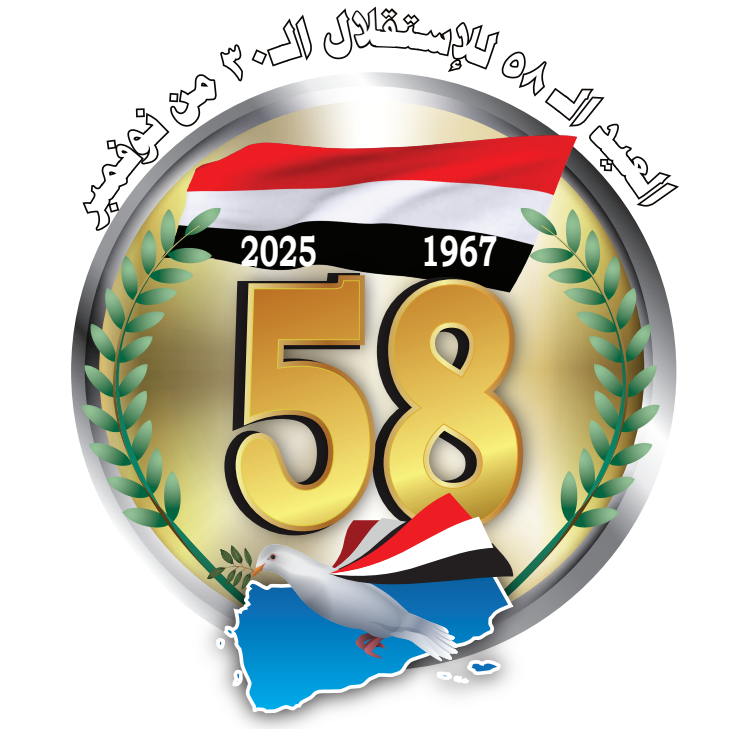
Foreign Ministry Denounces Iran’s Attack on U.S. Embassy in Riyadh
The Yemen Ministry of Foreign Affairs expressed its strongest condemnation and denunciation of the brazen Iranian attack targeting the United States Embassy in Riyadh, describing it as a flagrant violation of the sovereignty of the Kingdom of Saudi Arabia and a clear breach of relevant international norms and conventions.

OCHA: Regional Escalation Directly Impacting Humanitarian Conditions in Gaza and the West Bank
United Nations Office for the Coordination of Humanitarian Affairs has warned that ongoing regional escalation is directly worsening the humanitarian situation in Gaza and the West Bank.

Korea large companies' exports rise 10 percent
Large companies' exports in South Korea rose approximately 10 percent year-on-year in the fourth quarter of last year, driven by increased global demand for semiconductors.

Saudi League: Al-Nassr, Al-Ettifaq and Neom Secure Victories Over Al-Ittihad, Damac and Al-Riyadh
Al-Nassr defeated its guest Al-Ittihad 2–0 in the match that brought them together at Al-Awwal Park Stadium in Riyadh, as part of the 21st round of the Saudi Professional League.
Last Update: ،
2026/03/03
Time
03:28:50
Latest News:
 Ambassador Al-Sunaini, Japanese Lawmaker Discuss Boosting Parliamentary Cooperation
Ambassador Al-Sunaini, Japanese Lawmaker Discuss Boosting Parliamentary Cooperation
 Ambassador Al-Sunaini Meets Special Advisor to Japanese PM
Ambassador Al-Sunaini Meets Special Advisor to Japanese PM
 Planning Minister Discusses Intervention Plans and Future Cooperation with UNDP
Planning Minister Discusses Intervention Plans and Future Cooperation with UNDP
 Yemen participates in Global Ministerial Conference on Tourism in Berlin
Yemen participates in Global Ministerial Conference on Tourism in Berlin
 "MASAM" removes 1765 of Houthis-laid landmines in a week
"MASAM" removes 1765 of Houthis-laid landmines in a week
Latest News:
 Ambassador Al-Sunaini, Japanese Lawmaker Discuss Boosting Parliamentary Cooperation
Ambassador Al-Sunaini, Japanese Lawmaker Discuss Boosting Parliamentary Cooperation
 Ambassador Al-Sunaini Meets Special Advisor to Japanese PM
Ambassador Al-Sunaini Meets Special Advisor to Japanese PM
 Planning Minister Discusses Intervention Plans and Future Cooperation with UNDP
Planning Minister Discusses Intervention Plans and Future Cooperation with UNDP
 Yemen participates in Global Ministerial Conference on Tourism in Berlin
Yemen participates in Global Ministerial Conference on Tourism in Berlin
 "MASAM" removes 1765 of Houthis-laid landmines in a week
"MASAM" removes 1765 of Houthis-laid landmines in a week
Yemen youth uprising was not a luxury: FM tells Arab diplomats in Delhi
[14/07/2017 07:17]
New Delhi-SABA
Yemen' foreign minister has said the youth uprising of February 2011 in Yemen was not a luxury thing but a necessity to save Yemen, which was, then, on the verge of collapse due to the former regime's policies.
In a meeting with the Arab ambassadors in New Delhi, minister Abdul-Malik al-Mekhlafi who is on a visit to India said Yemen's revolution was distinct and ideal thanks to its peaceful characteristic in spite of the Saleh regime's savagely cruel response.
The revolution, he said, was also distinct in that women and other disadvantaged sets of the society took part in the rallies and no voices were heard calling for any party to be excluded, including the then-ruling party, the GPC.
The protesters also accepted to sit with all parties in an all-inclusive national dialogue at the end.
The minister explained that before the Arab uprising, Yemen "had reached a critical stage on all levels; economic, political and social."
"The reports from international organizations including the Transparency International were warning at the time that Yemen is edging close to collapse and that it was only a matter of time until it is declared a failed state."
"The political (southern) protesting movement had reached a boiling level. It is the exclusion exercised in the south since 1994 that caused the (southern) movement to exist."
Saleh' agenda was to monopolize and bequeath power within his relatives, the minister reminded.
"Corruption was spread in all levels of the state. Unemployment rate among the youth was at an international record peak. Poverty reached exceptional rates against the international standards. More than half the Yemeni people were under the poverty line."
The minister pointed how Yemenis at the end came to the discussion table to agree on breaking from the past and laying the foundations for their future democratic federal state, according to the GCC-brokered Initiative.
"The political process could have been completed peacefully, but Saleh and the Houthis wanted things to go otherwise. So they carried out a takeover of the power and constitutional institutions in September 2014.
An all-out war was then launched (by the Houthis) against the country. Threat was posed to Saudi Arabia. Iranclaimed (what it called) fourth Arab capital city.
With backing from Saleh, the Houthis swept all provinces and cities from Saadah to Aden."
The war was imposed on the Yemeni people and its leadership, it was not the government's choice. The government was forced to fight the war in defense of the Yemeni people against the militias' atrocities.
The minister says that to this moment "peace will remain the government's lasting choice. That is why it participated in all the peace talks and agreed to the UN peace proposals, the last of which the proposal concerning Hodeidah."
The government has agreed to the UN's proposal that the coup militias' hand over the Hodeidah sea port and city to a neutral party in return for the government's resumption of salary payments to all civil servants including the ones in the militia-controlled parts of Yemen.
Key words:
"Corruption - constitutional - characteristic - international - organizations - International - disadvantaged - SABA Yemen' - participated - institutions - Foreign Ministry Denounces Iran’s Attack on U.S. Embassy in Riyadh
Foreign Ministry Denounces Iran’s Attack on U.S. Embassy in Riyadh Ambassador Al-Sunaini, Japanese Lawmaker Discuss Boosting Parliamentary Cooperation
Ambassador Al-Sunaini, Japanese Lawmaker Discuss Boosting Parliamentary Cooperation Ambassador Al-Sunaini Meets Special Advisor to Japanese PM
Ambassador Al-Sunaini Meets Special Advisor to Japanese PM Planning Minister Discusses Intervention Plans and Future Cooperation with UNDP
Planning Minister Discusses Intervention Plans and Future Cooperation with UNDP Yemen participates in Global Ministerial Conference on Tourism in Berlin
Yemen participates in Global Ministerial Conference on Tourism in Berlin "MASAM" removes 1765 of Houthis-laid landmines in a week
"MASAM" removes 1765 of Houthis-laid landmines in a week Minister of Agriculture discusses with FAO agricultural, fishery development projects
Minister of Agriculture discusses with FAO agricultural, fishery development projects  Prime Minister receives message from his Maltese counterpart
Prime Minister receives message from his Maltese counterpart Prime Minister: Efforts must be redoubled to improve public revenues
Prime Minister: Efforts must be redoubled to improve public revenues Local Administration Minister Discusses WFP Humanitarian Interventions
Local Administration Minister Discusses WFP Humanitarian Interventions


